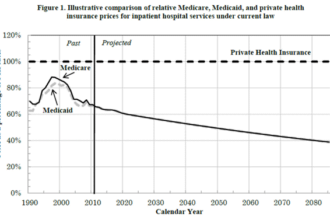

Rule Underestimates Certain Costs
The RBMA believes that the MPFS proposed rule may significantly miscalculate the cost of maintaining diagnostic imaging equipment, especially mammography equipment. It also underestimates the malpractice insurance expense for non-physicians professionals.
Furthermore, the association questions the CMS’s planned transition from film to digital imaging and the uncertainty as to the methods the agency employed to determine the MPPR policy for the professional component (PC) for a radiology procedure, and raises a red flag.
The Protecting Access to Medicare Act (PAMA) of 2014 requires the CMS to make public any data and assumptions that serves as the basis for the MPPR-PC.
Codes for Digital Mammography
Since the CMS declares that the current mammography CPT codes may be incorrectly valued, the 2015 MPFS has a provision which would eliminate the mammography G-codes— G0202, G0204 and G206. This is the only valid method to represent the services performed using tomosynthesis.
Imaging providers will be relegated to using relative value unit (RVUs), which means that tomosynthesis would have the same values as a mammogram performed with the more common digital or analog technology–77057, 77056 and 77055.
In the short-run, providers could see an increase in reimbursements until CMS reviews additional data related to professional time commitments, work practices costs and technological advances associated with tomographic mammography services to set new values for these CPT codes.
Contract Rates based on current year MPFS rates or RVUs
Service providers that base their contractual payments on the current year MPFS rates or RVUs should note that the proposed rule changes will have a minimal effects for the professional component (PC; -26) whether you use digital or analog mammographic technology.
The proposed rule should have a positive effect for the global and technical component (TC) analog mammography because the TC RVUs for digital mammography are much higher than those for analog.
Be sure to evaluate each of your contracts and make the required updates to MPFS rates or RVUs. The rule change will take place on January 1, 2015.
Contract Rates Other than current year MPFS rates or RVUs
Radiological service providers that determine they have contract rates for global or TC digital mammography on some basis other than current year MPFS rates or RVUs, could potentially experience a sizable negative impact.
Minimize the impact on your practice by taking the following action:
- Inform your payors about the likely effect of the propose rule change.
- Encourage them to adopt the CMS method and transfer rates/RVUs from G0202-G0206 to 77055-77057
- Renegotiate the previously agreed terms of your payor contracts.
Updates in some of the Medicaid and Tricare fee schedules may not appropriately update on January 1st of each year. This could put your reimbursements at risk. The association advises its members to assess their contract provisions now. Waiting for final rule changes, which will come out in November, may not leave enough time to address the issue with payors prior to January 1, 2015.
In an environment of relentless reimbursement cuts, it’s critical for radiology practitioners to stay abreast of policy changes from government as well as private payers. Even the minutest modification of a formula for calculating radiological reimbursements can whittle away your revenue stream and your bottom line.
Image Courtesy via Stuart Miles/freedigitalphotos.net






